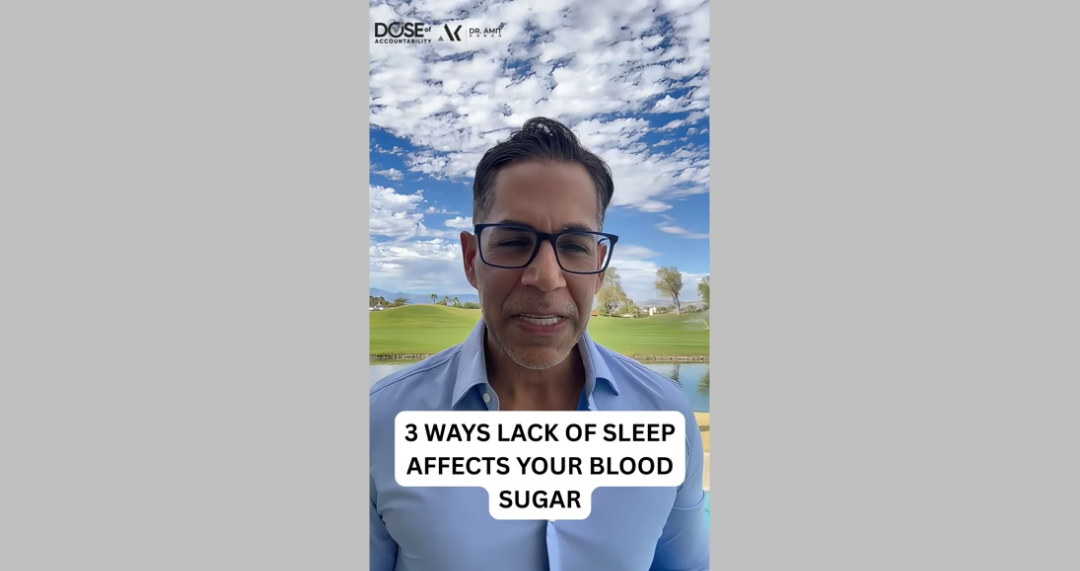3 Ways Lack Of Sleep Affects Your Blood

3 Ways Lack of Sleep Affects Your Blood Sugar
Sleep isn’t just rest — it’s repair. And one of the most overlooked areas sleep impacts is your blood sugar.
I’m Amit Kakar, Pharm.D., a pharmacist and health & wellness coach. Over 26 years of owning and operating pharmacies, I’ve dispensed more than 3 million prescriptions. Through that experience, I’ve seen firsthand how lack of sleep quietly disrupts one of the body’s most essential systems — insulin and blood sugar regulation.
If you manage your blood sugar, you manage your state. And sleep is a key part of that equation.
1. Lack of Sleep Causes Insulin Resistance
When you don’t get enough sleep, your body’s ability to use insulin effectively starts to decline. This is known as insulin resistance — when your cells stop responding properly to insulin’s signal to absorb glucose.
The result? Your blood sugar levels stay elevated longer than they should. Over time, this can lead to chronic fatigue, brain fog, and increase your risk of developing Type 2 diabetes.
2. Sleep Deprivation Increases Cortisol (Your Stress Hormone)
Poor sleep tells your body you’re under stress — even if you’re not. In response, your adrenal glands release cortisol, a hormone designed to help you handle stress.
The problem is, cortisol also signals your body to release more glucose (sugar) into your bloodstream for “quick energy.” When this happens night after night, your blood sugar remains high, and your insulin levels work overtime trying to compensate.
3. Lack of Sleep Triggers Cravings for Sugar and Refined Carbs
Ever notice how you crave sweets or bread after a poor night’s sleep? There’s a reason for that.
Lack of sleep increases ghrelin (your hunger hormone) and decreases leptin (your fullness hormone). This hormonal imbalance drives you to reach for quick sources of energy — like pastries, candy, and refined carbs — which spike your blood sugar even higher.
The Bottom Line
Sleep is more than just downtime — it’s a biological reset. When you don’t sleep enough, your hormones, metabolism, and blood sugar control all take a hit.
Start by making small, consistent changes:
- Aim for 7–8 hours of sleep per night.
- Keep a regular bedtime and wake-up time.
- Limit caffeine and screen time before bed.
- Create a dark, cool, quiet environment for better rest.
Managing your blood sugar isn’t just about food and exercise — it’s also about recovery. Prioritize your sleep, and you’ll notice the difference in your energy, focus, and overall wellness.



 ATTENTION HI-DESERT RESIDENTS
ATTENTION HI-DESERT RESIDENTS Download our complimentary guide today, “Top 5 Medicine Cabinet Musts!”
Download our complimentary guide today, “Top 5 Medicine Cabinet Musts!”